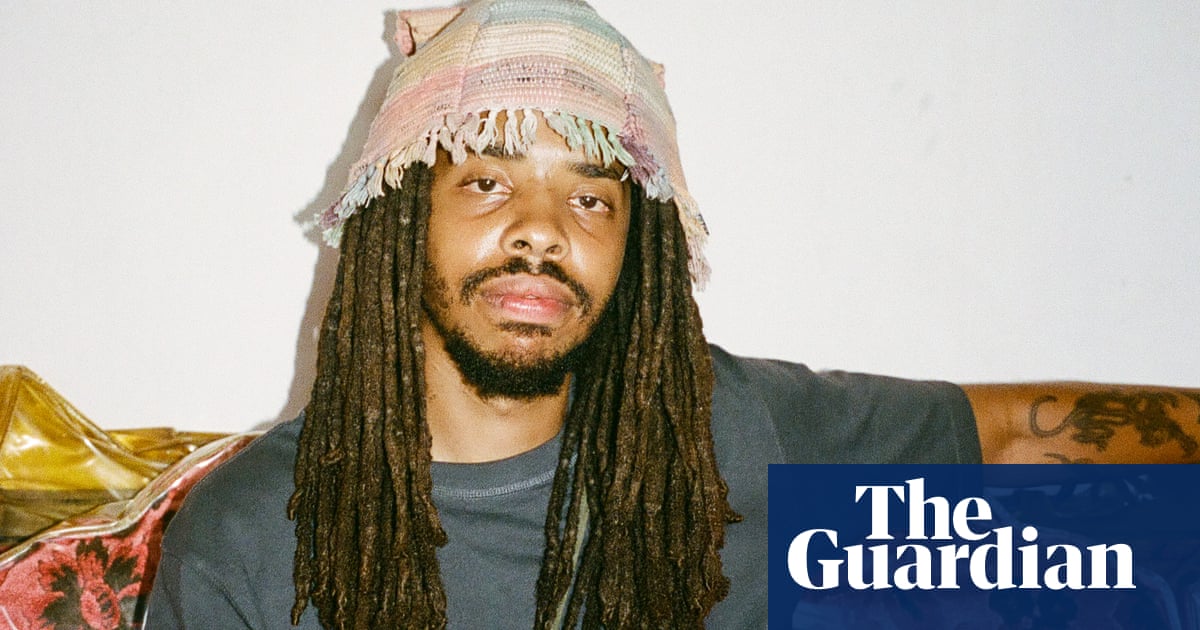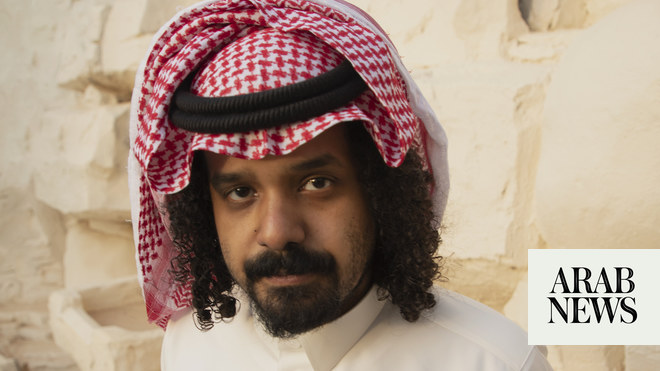
The arrival of Odd Future was a cattle prod to popular culture. Armed with just their laptops and alarmingly confessional hip-hop tracks that contrasted tales of teenage woe with violent fantasies, a dozen high-schoolers rode a tidal wave of rap forums, Twitter and the then cresting Tumblr to bestride the world stage. They emerged from Los Angeles at the end of the 2000s, before exploding in 2011 with the release of Tyler, the Creator’s controversial breakout hit Yonkers. The group sparked a thousand thinkpieces about their controversial lyrics, which in turn only made them more popular.
While Tyler was the leader, Odd Future’s first flush of fame was haunted by the spectre of Thebe Neruda Kgositsile, AKA Earl Sweatshirt. With his malevolent tone and ultraviolent, often brilliant lyrics, Kgositsile occupied a special place in Odd Future lore from the drop of his debut single, the self-titled Earl, on which he proclaimed he was “twisted, sicker than mad cattle in fact I’m off / Six different liquors, with a Prince wig plastered on”. As memorable as the song was its viral video, which showed the 16-year-old and his friends blending a mixture of booze, weed, pills and cough syrup before throwing it all up. The grainy camera footage then pivots to the group picking up gruesome skateboarding injuries.
All the while, Earl continues to rap what the now 29-year-old Kgositsile, “super-ashamed” of his past homophobic language, will only refer to as “the F-slur”.
“I have to face all that shit,” he says. “I wanted to walk shit back hella times, I wanted to figure out how to take shit off the internet for ever.”
Had Earl stayed within his niche audience, perhaps Kgositsile and his friends would have had the chance to grow up a bit before exploding on to the global scene. Unfortunately, a combination of their talent and the internet meant Odd Future’s very first work reached a massive audience: Kgositsile was on the map, and thirsty fans waited on his debut album. Except just as promptly as he’d arrived, he vanished. Fans later learned that his mother, concerned at the content of the Earl video and the crowd he was running with, had packed him off to Coral Reef Academy, a boarding school for at-risk boys in Samoa.
“That shit was some high-speed parenting,” he tells me more than a decade on. “It was a highly risky move.” But did it pay off – sending him to one of the farthest corners of the globe just as stardom beckoned? “Yeah it paid off,” he continues. “I would not be here, if I didn’t go there. I don’t know if I’d be dead but I wouldn’t be here like this.”
Even in his absence, Kgositsile was very much at the centre of Odd Future, with fans chanting “Free Earl” at gigs and awards show appearances. While his friends had been touring the world and chin-wagging with rap luminaries such as Pharrell and RZA, Kgositsile had been away from the spotlight for 18 months, watching expectations grow to unmanageable proportions: “Shit was too big, bro; I feel like Doris [his 2013 debut album] was a shot in the foot. While I was gone, motherfuckers was like: ‘Brother, the rap messiah, he’s gonna cut Nas’ head off. He’s gonna come back and dominate everything.’ That was the expectation. And I came back and I just made some more music with my friends. Motherfuckers was like: ‘Is that it?’ It was awkward and I couldn’t handle it.”
Kgositsile is speaking to me prior to performing a show at Koko in north London to mark a decade since Doris’s release. He has mixed feelings about the album: while not disowning his early work, he says that preparing to perform it was a challenge: “It gave me so much anxiety that first day because I had done this 10-year walk away from it. I faced it. I accepted it. But I didn’t have to actually listen to Doris.” As well as the “F-slurs” and the threats of violence, the embarrassment of Odd Future is contained in the fact that they took up so much space in the cultural ecosystem while being quite so immature. “Yeah,” he cringes. “I mean it was a weird time … what’s embarrassing is that I thought that shit was hot as fuck.”
Kgositsile’s career is one of two halves. There’s his tenure as one of the core members of Odd Future, albeit with his time in Samoa leaving him out of sync with the group’s success. That period produced a mixtape, Earl, his debut album Doris and a follow-up, I Don’t Like Shit, I Don’t Go Outside, released in 2015 around the time of Odd Future’s disbandment. “I had a fallout with my friends and begun the arduous trek of rugged individualism,” he says, tongue in cheek.
The second half of his career came after I Don’t Like Shit’s release, as Kgositisile stepped away from the limelight to re-evaluate his career and musical style. There would be no full-length release for more than three years, until 2018’s Some Rap Songs, a collection of barely two-minute tracks that blurred the line between hip-hop and avant garde jazz. The result was stunning, receiving acclaim across the board.
Post-Some Rap Songs, his music is not only defined by the fusion of jazz and hip-hop but by brief, hookless tracks that usually feature single drawn-out verses and lines that meander between and across bars. It’s fair to say that Earl no longer sounds like the typical LA rapper – if he ever did. “I say shit like an LA nigga but I don’t make LA music,” he says. I ask where his music’s from. “I’m gonna say ‘myself’ even though that sucks,” he replies. The exchange is reminiscent, I say, of his line from Chum when he said he was “too black for the white kids and too white for the blacks”. Immediately, he is riled: “I hate that bar. One of the hardest parts of the Doris tour is saying that. It’s an undercooked take. I was 18!”
Kgositsile is no longer a boy. You would hope this isn’t something he needs to prove, having grown up on record over the course of the last decade. He is nearing 30 and has just dropped his fifth album. Its title, Voir Dire, is a nod to his mother’s legal career (she is Cheryl Harris, UCLA professor of civil rights and civil liberties). A collaboration with producer and DJ the Alchemist, the album wrestles with Kgositsile’s fatherhood, the looming presence of his own father, the South African poet Keorapetse Kgositsile, who died in 2018, and his own mythology over an all-killer 27 minutes.
“God is a comedian,” says Kgositsile, of becoming a father. “That was the craziest punchline of my life. My dad died and at first I got mad. I was like, you just gonna die and I didn’t get to spill my fucking guts and have you look at me awkwardly while I go through a laundry list of things I didn’t like from the past 26 years.” He says after his dad died he would sit around with his brother reflecting on how easy fatherhood would be: “I was like: ‘Oh, I’d be such a good dad. It’s not even hard.’ And then God was like: ‘Go ahead – have a child, bro.’”
The album reaches its apotheosis on closer Free the Ruler where Kgositsile takes on his depression and his relationship with his parents, rapping: “I’m back cuttin’ up a list of reasons I love my mother’s laugh / The best one is that’s just what it is”. It’s a beautiful song and, when pressed, the one that Kgositsile names his “dying song”, the one that were he to pass away tomorrow, he’d be happiest that it exists. “If I left Earth, I’d be OK because of that one.”
Given that he was just 16 when he took on his rap persona, is Earl Sweatshirt a suit that still fits Kgositsile? Perhaps the day will come he feels more confident releasing music under his real name? “No, I fuck with it,” he says of his rap name. He didn’t want to leave it as a monument to his earlier, more regrettable behaviour. “I had to make it inhabitable during that Some Rap Songs period, because [of] Doris, because I was a little kid, because I was saying things that I look back on years later and think: ‘Damn, I don’t want to say that any more.’ I had to make myself inhabitable, I had to make that name inhabitable. I couldn’t leave Earl Sweatshirt like an abandoned building.”












